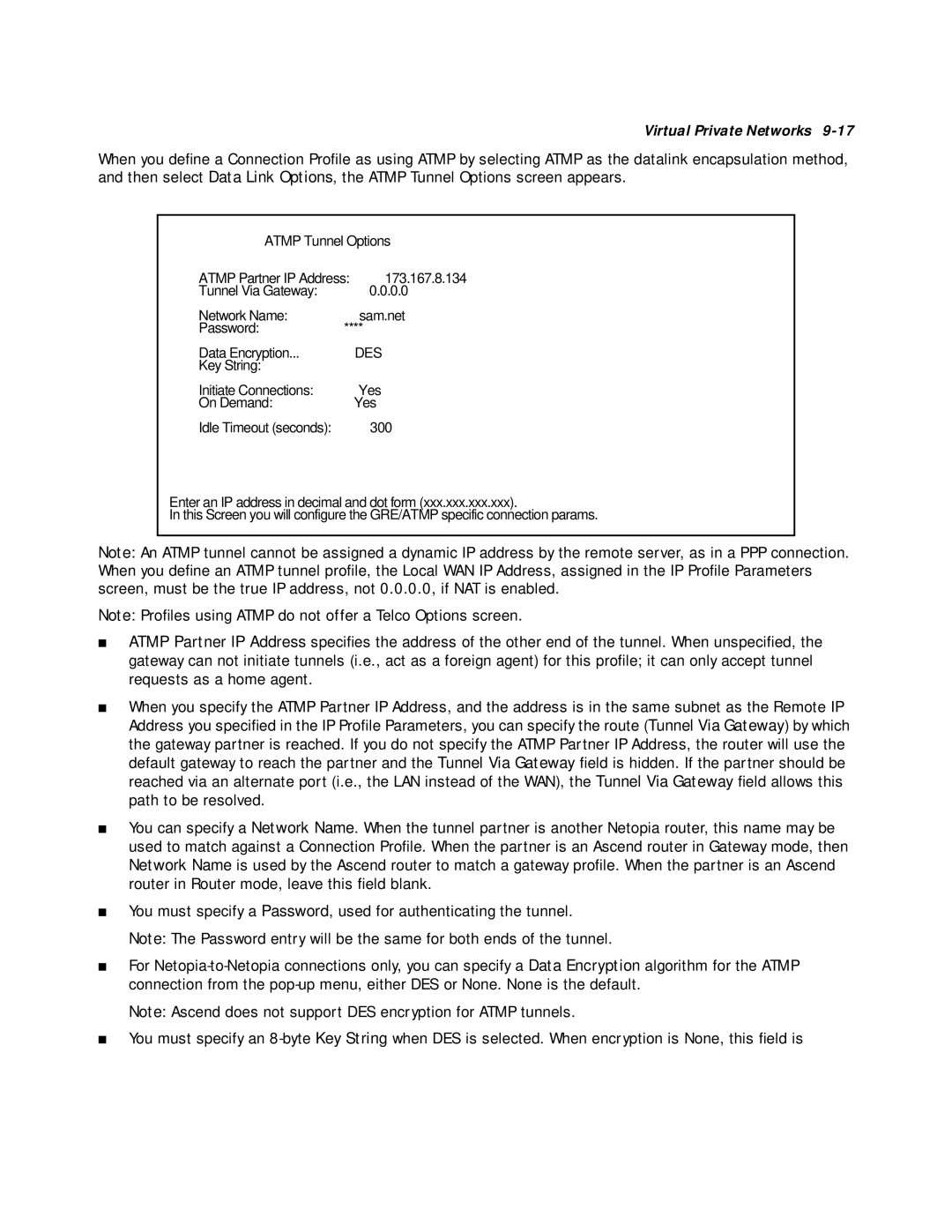
Virtual Private Networks 9-17
When you define a Connection Profile as using ATMP by selecting ATMP as the datalink encapsulation method, and then select Data Link Options, the ATMP Tunnel Options screen appears.
ATMP Tunnel Options
ATMP Partner IP Address: | 173.167.8.134 |
Tunnel Via Gateway: | 0.0.0.0 |
Network Name: | sam.net |
Password: | **** |
Data Encryption... | DES |
Key String: |
|
Initiate Connections: | Yes |
On Demand: | Yes |
Idle Timeout (seconds): | 300 |
Enter an IP address in decimal and dot form (xxx.xxx.xxx.xxx).
In this Screen you will configure the GRE/ATMP specific connection params.
Note: An ATMP tunnel cannot be assigned a dynamic IP address by the remote server, as in a PPP connection. When you define an ATMP tunnel profile, the Local WAN IP Address, assigned in the IP Profile Parameters screen, must be the true IP address, not 0.0.0.0, if NAT is enabled.
Note: Profiles using ATMP do not offer a Telco Options screen.
■ATMP Partner IP Address specifies the address of the other end of the tunnel. When unspecified, the gateway can not initiate tunnels (i.e., act as a foreign agent) for this profile; it can only accept tunnel requests as a home agent.
■When you specify the ATMP Partner IP Address, and the address is in the same subnet as the Remote IP Address you specified in the IP Profile Parameters, you can specify the route (Tunnel Via Gateway) by which the gateway partner is reached. If you do not specify the ATMP Partner IP Address, the router will use the default gateway to reach the partner and the Tunnel Via Gateway field is hidden. If the partner should be reached via an alternate port (i.e., the LAN instead of the WAN), the Tunnel Via Gateway field allows this path to be resolved.
■You can specify a Network Name. When the tunnel partner is another Netopia router, this name may be used to match against a Connection Profile. When the partner is an Ascend router in Gateway mode, then Network Name is used by the Ascend router to match a gateway profile. When the partner is an Ascend router in Router mode, leave this field blank.
■You must specify a Password, used for authenticating the tunnel.
Note: The Password entry will be the same for both ends of the tunnel.
■For
Note: Ascend does not support DES encryption for ATMP tunnels.
■You must specify an
